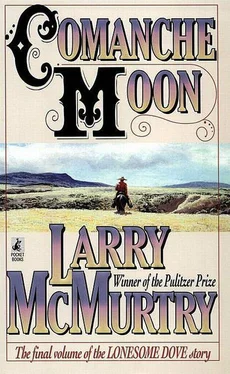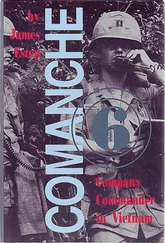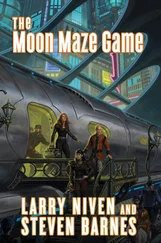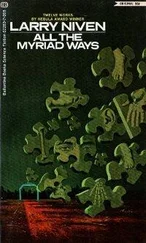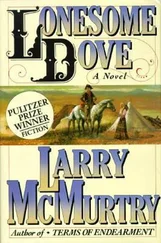William would not think her worth recovery.
Even the children, if they were not brought back quickly, he might disown. But Maudy couldn't think about that; she had to concentrate on keeping her children alive.
She had to see that they got warmth, and food, and that they did not provoke their captors by lagging or crying.
At first, as they rose onto the plains and the weather grew sharp, clothes were the first worry. Their farm was in the south; the three of them were lightly clad. All that remained of the cotton dress she had been wearing was a few scraps tied around her loins. When the cold deepened, the Indians let her cover the children with a bit of old blanket at night. She herself had nothing. She had not yet recovered from the birth of little Sal, a fact lost on her captors. She awoke in the morning from her few minutes of restless sleep with blood frozen on her legs. She feared, for a time, that she might bleed to death, but she didn't, though at times she was so weak that her vision swam.
Fortunately an older man, whose name was Quick Antelope, was not so cruel as Tana. He joined in her torment, but without enthusiasm, and was kindly toward the children. When she could not interest them in taking food, Quick Antelope made a soup which tempted them. Once when Tana began to beat her with a heavy stick, murder in his eyes, Quick Antelope took the stick from him and made him calm down.
It was not until later that she learned the older warrior's name. At first the only name she knew was Tana, the young man with the deep burn of hatred in his eyes, the man who beat her hardest and devised the most intricate torments for her. It was Tana who hit her with hot sticks from the fire, who outraged her longest, and spat on her if she tried to resist.
The night after they left Eddie, Maudy began to sob and could not stop. She thought of her boy, lying in the thin grass with his broken head, dying alone, and the wall around her feelings broke.
She began to sob so loudly that all the warriors grew angry. Bessie and Dan were fearful; they tried to shush her, but Maudy could not be shushed.
Eddie was dead, little Sal was dead; tears flooded out and she could not stop them, even though Tana dragged her through the fire by one ankle and hit her so hard he knocked out one of her front teeth. But, in her bereavement, Maudy scarcely felt the beating or the burns. She cried until she had no strength left to cry. The Comanches, disgusted and fearful, finally left her alone. Snow began to fall, drifting out of the cold sky onto the dark plains.
Finally Maudy got up and pulled the scrap of blanket over Bessie and Dan; they watched the big snowflakes flutter into the campfire, causing it to make a spitting sound.
Across the campfire Tana was still looking at her, but Maudy sat close to her children and avoided his eyes.
Tana wanted Quick Antelope, Satay, and Big Neck to go on to the main camp with the captive white children and the fourteen horses they had stolen. The horses were not the skinny horses Kicking Wolf was always stealing from the poor farmers along the Brazos. These horses were used to eating good grass. They were strong fat horses, of the sort Buffalo Hump liked. Tana thought Buffalo Hump would be impressed with the horses --he wanted the other warriors to hurry and take the horses and the two children to Buffalo Hump's camp. The two children were sturdy; they had borne the trip well and could be traded, or else put to work in the camp.
What Tana wanted was to stay behind with the white woman and torture her to death, as vengeance against the whites who had killed his father. Long before, when Tana had been younger than the captive children, his father, Black Hand, had gone with many other chiefs to a big parley with the whites in a place of council. The whites had promised the chiefs safe passage--when they went into the tent to parley, the white chief had asked all the Comanche and Kiowa leaders to leave their weapons outside. Many of the chiefs, including Black Hand, had been reluctant to do this, but the whites made them strong promises and some chiefs agreed, though they were wary. They had no reason to trust the whites, and they didn't trust them.
Some of chiefs concealed at least a knife, when they went into the tent.
They were right to be wary, for the whites immediately tried to place all the chiefs under arrest, claiming that the chiefs had not returned all the white captives they were supposed to return.
Tana's father, Black Hand, protested that he had never agreed to return any captives, but the whites were arrogant and told the chiefs they would all be put in chains. The chiefs with knives immediately drew them and stabbed a few of the whites.
Then they cut their way out of the tent, but the tent had been surrounded by riflemen and all but four of the chiefs were immediately cut down, or captured. Black Hand was shot in the hip and taken prisoner. That night the white soldiers tormented him with hot bayonets and, in the morning they hung him, not with a rope but with a fine chain, so that he was a long time dying. Then, because Black Hand had been the most important chief to attend the parley, the whites cut off his head and kept it in a sack. They said they would return the head only when all the remaining white captives had been returned to Austin.
But it was too late to return any captives. The four chiefs who escaped told all the tribes about the dishonesty and treachery of the whites. The few captives held by the tribes at that time were immediately tortured to death.
Tana's own mother went to Austin to beg for the head of her husband. She wanted to put it with his body, so his spirit would be at rest. But the whites merely laughed at her and chased her out of town. One white man cut her legs with a whip--cut them so deeply that she still bore the scars.
Tana was young, but he had waited all his life to capture a white person, someone he could torture to avenge his father, whose head the whites had never returned. They had even lost the sack it was kept in; no one knew where the head of Black Hand was.
Though he had abused and beaten the white woman, what he had done was nothing compared to what he intended to do, once Quick Antelope and the others took the horses and left. Because of the whites and their treachery he had had no father to instruct him as he was growing up. He had yearned bitterly for his father; the torture of the skinny white woman would not make up for his loss, but it would help.
Quick Antelope, though, would not agree to go.
"We have to take all the captives to Buffalo Hump," he insisted. "Then if he says you can have the woman, you can have her. The women will help you with what you want to do." "I do not need any women to help me," Tana said. "I want to do it here and I want to do it now. Take the horses and go." Big Neck, though he had known Black Hand and understood the reasons why Tana wanted to torture the woman himself, agreed with Quick Antelope. Tana was only one raider, and a young one. The woman did not belong to him alone.
Satay did not take part in the argument with Tana. He made it his business to see that the stolen horses did not stray. Satay thought the white woman would die anyway, soon. Her breasts were swollen with the milk she had been feeding the infant they killed. Her breasts dripped milk all day and her legs were bloody. She had made a big fuss in the night, crying for dead children, who could not come back. Though Quick Antelope and Big Neck were right to point out to Tana that the woman did not belong to him alone, Satay would have let him have her. She would only last a few hours at most. Even if she did survive until they reached the big camp, the women would make short work of her. They made short work of white women stronger than this one.
Satay thought it was foolish to argue so much about one woman. The sun had been up for some time.
Читать дальше
